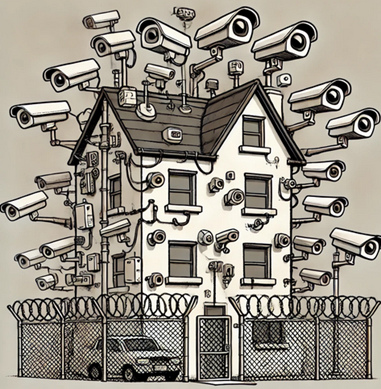In a perfect world, living in a townhouse condo might seem like a straightforward and cost-effective option. You enjoy the privacy of your own home without the high-rise luxuries such as pools, gyms, or concierge services. One would think that, given the circumstances, condo fees should be quite low. Sadly, this is not always the case. The truth is, even without the extravagant amenities of a towering condominium, those fees can be quite high.
Townhouse condos, much like any other type of condominium, come with shared expenses that contribute to the upkeep and overall functionality of the property. One significant area of expenditure is the maintenance and repair of shared infrastructure. While you may not have a lobby or gym, your townhouse complex likely shares several critical components such as roofing, underground garages, and mechanical equipment.
Roofing, for example, is a shared responsibility in a townhouse condo. Unlike a single-family home where the homeowner is solely responsible for roof maintenance, the cost of repairs, replacements, and routine maintenance of the roof is distributed among all residents. This collective approach not only spreads out the cost but also ensures that the entire complex remains in good condition.

I’m not sure the condo board will be ok with you taking the roof off to save on maintenance fees. In fact, I think they may be really upset about this.
Similarly, if your complex has an underground garage, its upkeep is a shared expense. The garage is a common area that benefits all residents, providing secure parking and storage space. Underground garages also have complex fire repression systems, which themselves require temperature control to work properly. Maintaining this area involves regular cleaning, structural inspections, and repairs, all of which are funded by your condo fees.
Mechanical equipment, such as heating and cooling systems and water heaters, also falls under shared expenses. Regular maintenance and eventual replacement of these systems are necessary to keep everything running smoothly. By contributing to these costs through your condo fees, you ensure that essential services remain uninterrupted and efficient.
The distinction between common areas and private spaces significantly influences the amount of your condo fees. For instance, a townhouse complex with a courtyard and fountain will incur higher maintenance costs than a complex with minimal common space. These areas require regular upkeep, including landscaping, cleaning, and repairs, which are funded by the condo fees. On the other hand, a complex with limited common spaces might have lower fees, but there are still shared responsibilities such as exterior maintenance, insurance, and reserve funds for future repairs.
Insurance and management costs are other critical components covered by condo fees. Comprehensive insurance policies protect the entire property against various risks, while professional management services ensure that the complex runs smoothly and efficiently. These services include everything from financial management to coordinating repairs and maintenance.
Shared security measures, such as surveillance cameras, keyfobs, and parking enforcement, also add to the expenses. These features enhance the safety and security of the complex, providing peace of mind for all residents. Effective security systems require regular maintenance and upgrades, which are funded through condo fees.

The age of the building plays a significant role in determining condo fees. As buildings age, components like roofing, plumbing, and mechanical systems require replacement or major repairs. A well-funded reserve fund is essential to cover these costs without imposing sudden, large assessments on residents. Regular contributions to the reserve fund ensure that the complex is prepared for future expenses and can handle unexpected repairs.
Finally, the size of the building matters as well. Townhouses often have fewer units than high-rise buildings, which means fewer people are contributing to the shared costs. Even if overall costs are lower, the reduced number of units contributing to those costs may still mean more money per unit.
In summary, while your townhouse condo may not have the flashy amenities of a high-rise, the condo fees you pay are crucial for maintaining and enhancing your living environment. These fees cover the upkeep of shared infrastructure, insurance, management, security, and reserve funds for future needs. Understanding the value of these contributions helps appreciate why condo fees are an integral part of townhouse condo ownership. A well-maintained property not only enhances your quality of life but also protects your investment in the long run.
TLDR
- Townhouse condominiums can sometimes have fees as high as buildings with more amenities.
- This is due to a number of factors, such as the age of the building, the amount of shared space and shared equipment, insurance, and management fees.
- Townhouses often have fewer units than high-rise buildings, which means less people are contributing to the shared costs. This means more money for each unit.
